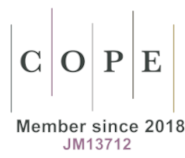The Currency of Fantasy: Discourses of Popular Culture in International Relations
DOI:
https://doi.org/10.2478/ipcj-2013-0002Słowa kluczowe:
Popular Culture, Discourse, International Relations, Harry PotterAbstrakt
The “facts” of international politics constitute the first-order representations of political life and can be reflected in popular entertainment as second-order or fictional representations. This article demonstrates that discourses of popular culture are powerful and implicated in International Relations (IR) studies. The article makes two correlated claims: the first is that the humanist and anthropological methodology often used to analyse pop culture could also be used to analyse international issues, if appropriately contextualized; the second claim is that a nation can manifest its ‘discourse’ in international politics via its popular culture, as soft power.
Pobrania
Bibliografia
Andersen, Margaret L. Howard Francis Taylor, Sociology: the Essentials. Singapore: Cengage Learning, 2006.
Zobacz w Google Scholar
Bennet, Tony. Formalism and Marxism. London: Routledge, 1989.
Zobacz w Google Scholar
Bretton, Henry L. International Relations in the Nuclear Age: One World, Difficult To Manage. Albany, NY: SUNY Press, 1986.
Zobacz w Google Scholar
Bronwyn Beatty: The Currency of Heroic Fantasy: The Lord Of The Rings And Harry Potter From Ideology To Industry. http://digitalcommons.massey.ac.nz/handle/10179/512
Zobacz w Google Scholar
Cory, Gerald A. The Consilient Brain: The Bioneurological Basis of Economics, Society, And Politics. Berlin: Springer, 2004.
Zobacz w Google Scholar
Craig, Timothy J. Japan Pop!: Inside The World Of Japanese Popular Culture. Armonk, NY: M.E. Sharpe, 2000.
Zobacz w Google Scholar
Drout, Michael D.C. “The Problem of Transformation: The Use of Medieval Sources in Fantasy Literature.” Literature Compass 1 (2004) ME :101, 1–22.
Zobacz w Google Scholar
Fields, J.W. “Harry Potter, Benjamin Bloom, and the Sociological Imagination.” International Journal of Teaching and Learning in Higher Education No 19 (2), 2007.
Zobacz w Google Scholar
Fierke, Karin M., Jørgensen, Knud Erick. Constructing International Relations: The Next Generation. Armonk, NY: M.E. Sharpe, 2001.
Zobacz w Google Scholar
Hanley, Richard. Ed. “South Park and Philosophy: Bigger, Longer, and More Penetrating.” Open Court (2007-03-08).
Zobacz w Google Scholar
Harvey, Graham. Indigenous Religions: a Companion. London: Continuum International Publishing Group, 2000.
Zobacz w Google Scholar
Heilman, Elizabeth E. Critical Perspectives on Harry Potter. London: Taylor & Francis, 2008.
Zobacz w Google Scholar
Johnson-Woods, Toni. Blame Canada! South Park and Popular Culture. London: Continuum, 2007.
Zobacz w Google Scholar
Klotz, Audie. Norms in International Relations: The Struggle against Apartheid. Ithaca, NY: Cornell University Press, 1999.
Zobacz w Google Scholar
Kreps, David M. “Intrinsic Motivation and Extrinsic Incentives.” American Economic Review No. 87(2) (1997).
Zobacz w Google Scholar
Mauss, Marcel. The Gift, Forms and Functions of Exchange in Archaic Society. London: Routledge and Kegan Paul, 1974.
Zobacz w Google Scholar
Melzer, Patricia. Alien Constructions: Science Fiction and Feminist Thought. Austin: The University Of Texas Press, 2006.
Zobacz w Google Scholar
Michael D.C. Drout, “The Problem of Transformation: The Use of Medieval Sources in Fantasy Literature.” Literature Compass No. 1 (2004) ME: 101, 1–22.
Zobacz w Google Scholar
Neal, Connie. Wizards, Wardrobes and Wookiees: Navigating Good and Evil in Harry Potter, Narnia and Star Wars. Westmont: InterVarsity Press, 2007.
Zobacz w Google Scholar
Nexon, Daniel H., Neumann, Iver B. Harry Potter and International Relations. Edited, Lanham, MD: Rowman and Littlefield Publishers, 2006.
Zobacz w Google Scholar
Paolini, A. J., Anthony, E., Moran, A., Navigating Modernity: Postcolonialism, Identity, and International Relations. Boulder, CO: Lynne Rienner Publishers, 1999.
Zobacz w Google Scholar
Pfaltzgraff Jr., Robert L. “Harry Potter in a Globalizing and Localizing World”, International Studies Review (2007) 9:718–720.
Zobacz w Google Scholar
Reeves, Julie. Culture And International Relations: Narratives, Natives, And Tourists. London: Routledge, 2004.
Zobacz w Google Scholar
Rosenberg, Emily S. Financial Missionaries To The World: The Politics And Culture Of Dollar Diplomacy, 1900-1930. Durham, NC: Duke University Press, 2003.
Zobacz w Google Scholar
Sylvester, Christine. Feminist International Relations: An Unfinished Journey. Cambridge: Cambridge University Press, 2002.
Zobacz w Google Scholar
Trend, David. The Myth of Media Violence: A Critical Introduction. London: Wiley-Blackwell, 2007.
Zobacz w Google Scholar
Weinstock, Jeffrey Andrew. Taking South Park Seriously. Albany, NY: SUNY Press, 2008.
Zobacz w Google Scholar
Yew, Leong. The Disjunctive Empire Of International Relations. Farnham UK: Ashgate Publishing, Ltd., 2003.
Zobacz w Google Scholar
Yu, Xintian. Cultural Impact on International Relations. CRVP, 2002.
Zobacz w Google Scholar
Zizek, S. The Ticklish Subject: The Absent Centre of Political Ontology. London: Verso, 1999.
Zobacz w Google Scholar
Pobrania
Opublikowane
Jak cytować
Numer
Dział
Licencja

Utwór dostępny jest na licencji Creative Commons Uznanie autorstwa – Użycie niekomercyjne – Bez utworów zależnych 4.0 Międzynarodowe.

















